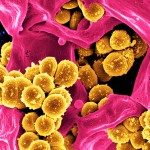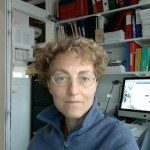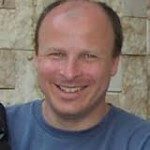Présentation
Scientific Background Differentiation of naïve CD4+ T lymphocytes into functionally distinct T helper cell subsets is essential for efficient immune responses against different types of pathogens. Effector T cell lineages selectively produce specific sets of cytokines, which modulate the responses of other cells involved in host defense. T helper type 1 (Th1) cells promote cell-mediated immunity and clear intracellular bacteria whereas Th2 responses are essential to fight extracellular helminthes. The recently identified Th17 subset is required for mucosal immunity and protection against extracellular bacteria and fungi. On the other hand, uncontrolled T helper cell responses play a critical role in the pathogenesis of various immunopathologies, such as allergies, asthma, chronic inflammatory and autoimmune diseases. Th1, Th2, and Th17 cells are primarily characterized by the secretion of “signature” cytokines, with Th1 cells producing interferon-g (IFN-g) and Th2 cells producing cytokines encoded by the “Th2 cytokine locus”, interleukin-4 (IL-4), IL-5, and IL-13. Th17 cells are characterized by the secretion of IL-17A and IL-17F, but may also produce additional cytokines such as IL-21, IL-22 and IL-26. Differentiation of T helper cells is regulated by “key” transcription factors (STAT4 and T-bet for Th1; GATA-3 and STAT6 for Th2 cell differentiation). The orphan nuclear receptor RORgt (RORC) is involved in the differentiation of Th17 cells. RORC is expressed during thymic development, but its expression is silenced in naive CD4+ T cells. Studies from several laboratories, including ours, have provided clear evidence that the process of Th1 and Th2 cell differentiation from naïve CD4+ T cells is accompanied by extensive modifications of the chromatin structure at the loci of the Th1 and Th2 cytokine genes. These modifications occur early during the differentiation process, are stably inherited in fully differentiated Th1 and Th2 effector subsets, and are the basis for the maintenance of the differentiated T helper phenotype. On the other hand, the epigenetic modifications at the basis of human Th17 differentiation are still largely unknown. Project Aim The aim of this project is to study how differentiation of naïve CD4+ T cells into Th1 and Th17 effector cells is coordinated at the level of the chromatin structure. To this aim, we will analyze the levels of permissive or repressive chromatin modifications at the signature cytokine loci and at the master transcription factors loci of Th1 and Th17 cells. These studies will be performed on T cell populations (CD4+, CD4+CD8+, and double-negative) isolated from human thymic specimens, on in vitro differentiated Th1 and Th17 cells, and on IFN-g or IL-17-secreting T cells isolated from the peripheral blood of healthy individuals (buffy coats), or from peripheral lymphatic structures (tonsils).



